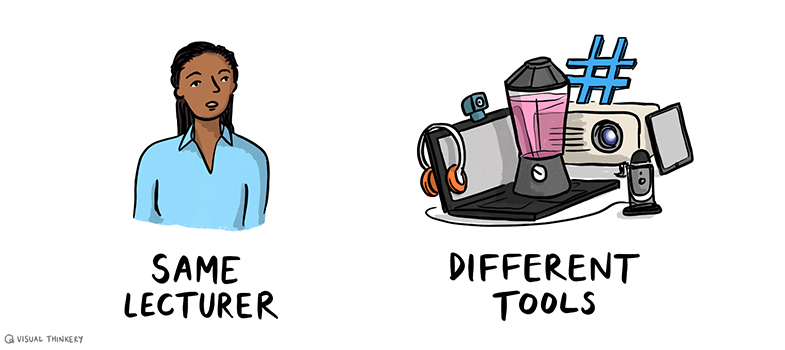3.2 Social technologies for enhancing online presence
Some social media tools can be used in online education to help staff develop a sense of place within the ‘wider world’ and to enhance their online profile (Veletsianos, 2016). Blogs and vlogs (video blogs) can help learners to reflect critically on a given topic and become familiar with expressing themselves in a public arena. They also mean explanatory text can be shared alongside class materials, providing greater context for learners who are catching up or revising. Twitter can be used to demonstrate the power of the collective, to share discovered resources, to seek feedback, and to contact experts in a given subject area. Uses of social media are explored in more detail in Session 5.
Activity 4.3 Social media in online education
Take a look at this infographic, which provides a wide range of suggestions for ways in which social media can be used in education. (You should be able to click on the image to zoom in.)
View larger image [Tip: hold Ctrl and click a link to open it in a new tab. (Hide tip)]
Drawing on the materials in Section 3, write down two to three ideas you might try in the future. What factors might you need to consider when implementing social media tools?
Comment
Social media tools can be useful in teaching, even though they may require careful implementation. This activity is designed to get you thinking about how social media could play a role in your online education, and what factors you need to consider when implementing social media tools.
3.1 Social technologies for promoting community







